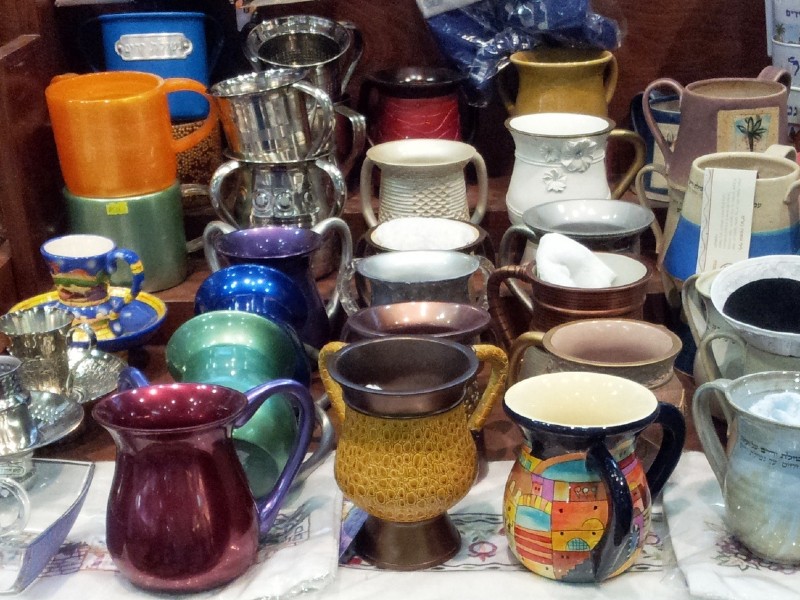Why is this Passover different from all other Passovers?
At all other seders, we are supposed to wash our hands twice. In the time of coronavirus, we wash our hands 40 times a day.
(Disclaimer: in years past, I have to admit, we often skipped one of the hand washings during our family seders, but not this year.)
On all other Passovers, the seder plate includes a hard-boiled egg, but on this night, we have to improvise with a chocolate one.
First there was a mad run on toilet paper. Apparently, some families worry this pandemic will last until 2052, and need to stock up accordingly. Then, the supermarket aisle with pasta was cleaned out, and now the eggs are gone, too. So, how are we supposed to complete our seder plate with an item designed to represent both the sacrifice offering from when the Temple in Jerusalem stood and also the hope of a new beginning in the circular cycle of life? The best I could find at a nearby store was a package of chocolate-covered Easter eggs. If the toilet paper hoarders are correct, and this goes on for years, I may have to look up YouTube videos on setting up a backyard chicken coop for future seders (and breakfasts).
Before all other Passovers, we search our homes to remove hametz, but before this Passover, we stock up on all types of non-perishables.
For most Jews, the weeks before Passover are marked by trying to rid the kitchen of bread, cookies and all the crumbs of hametz that can be located. Now, with the dangers of even heading to the supermarket, we are confronted with the reality of trying to stock up on non-perishables that are predominantly not kosher for Passover (that previously mentioned pasta aisle comes to mind). Fortunately, there is another annual ritual to save us: temporarily hiding and selling our hametz to a non-Jewish neighbour. It just happens to be a much larger batch this year.
When I was doing my own pantry inventory, I discovered the ultimate non-perishable: an unopened box of matzah from 2019. The “expiration date” was just a few weeks ago. Do I risk the virus and head back to the store for more “fresh” matzah, or make do with “slightly expired matzah” this Passover? I checked with Rabbi Erin Polansky of Beth Israel Congregation in Kingston, Ont., who reassured me that a sealed, unopened box of last year’s matzah is still kosher for Passover.
As matzah is the ultimate non-perishable, I’m going to take my chances with the box, and will soon report on its quality. My guess: for better or worse, it will taste just like regular matzah.
On all other Passovers, we conduct a huge seder with friends and family, but on this night, we will be alone.
This is the heartbreaker. Social distancing will make the seder of 5780 one of the most painful in recent memory. Gone are the two tables full of dinner guests, and their grimaces as I make corny Passover jokes. Is it a seder without grandchildren asking grandparents the real Four Questions? My solution isn’t talmudically kosher, but if we can’t celebrate together in person, we will conduct the seder via Skype. That way, we can still recount the tale of liberation from slavery in Egypt, and dip our fingers to remember the 10 plagues while we endure a modern-day one. The search for the afikoman could be a challenge, but I’m sure we will find a solution.
And when we say “Next year in Jerusalem,” let’s hope researchers discover a vaccine, travel bans and social distancing are long gone, and families can again be reunited.
This is an excerpt of the forthcoming Coronavirus Haggadah.
